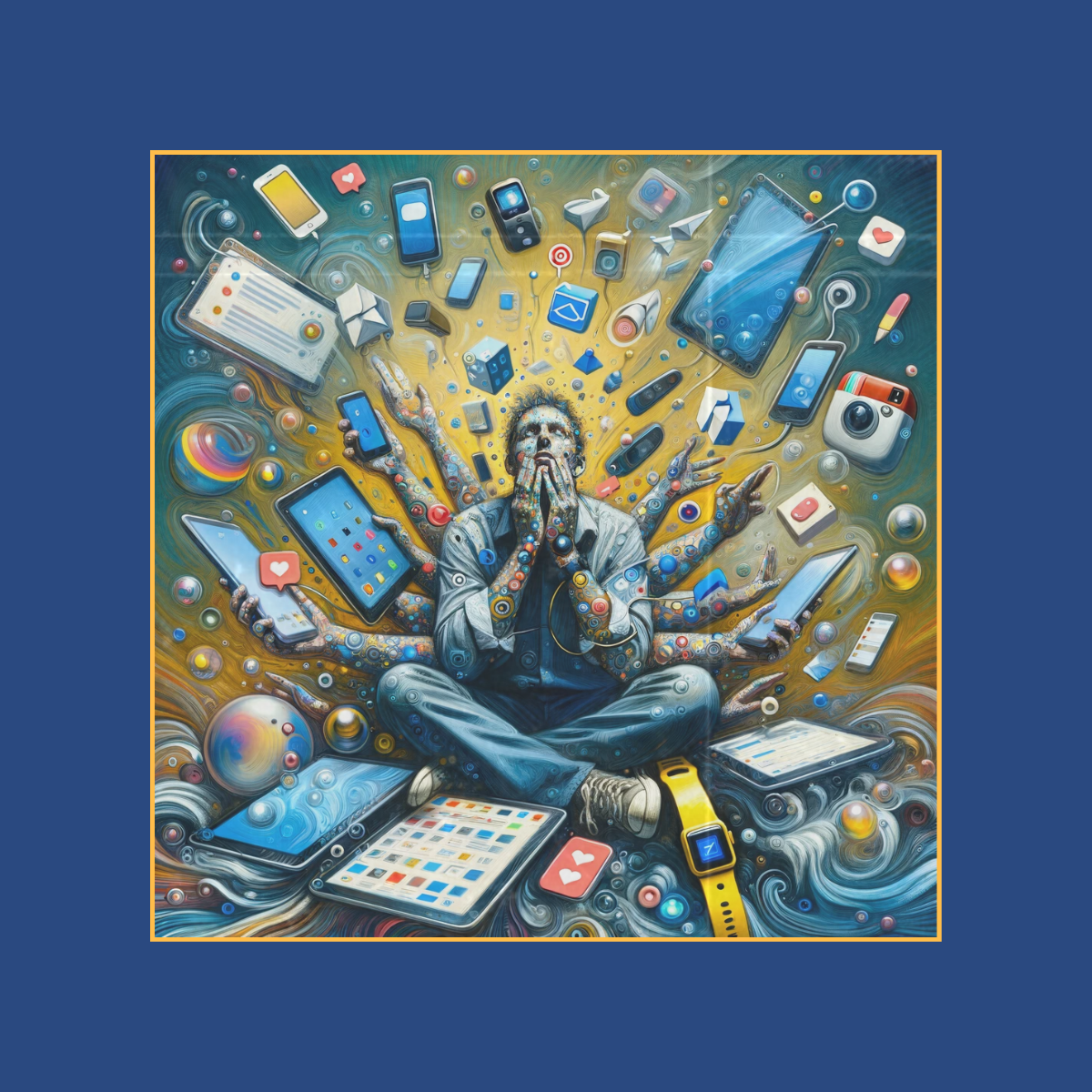Mastering Your Mental Energy: 3 Practical Tips for Enhanced Decision-Making Skills
I was a terrible leader for the first 8.5 years of my career.
Do you know how it feels to be stuck in a rut, making decisions that seem more like shots in the dark than strategic moves? That was me. In small business leadership, every decision counts, but when your mental energy is as scattered as a jigsaw puzzle, good luck putting together a clear picture.
For me, it all started as a teenager.
You know the feeling when you're craving something so bad that you'd trade your grandmother's secret recipe for it. That was me with Doritos. I wasn't just eating them; I was inhaling them like oxygen. Picture me, a 250-pound Offensive Lineman with a Doritos bag: that was my version of a high-performance fuel tank.
Back then, my nutritional philosophy was, "If it makes me bigger, it's on the menu."
This wasn't rocket science (more like a hungry hippo strategy). I thought chips were the stairway to strength heaven. Or, that's what my mouth desires were telling me. Little did I know, they were more like a greasy slide into junk-food junky land.
It made me fat, slow, and constantly tired. But for whatever reason, with those teen hormones, I was living my football dream.
Fast forward to adulthood.
My cravings evolved from Doritos to chasing tasks and worldly dreams. If tasks were cookies, I was the Cookie Monster of productivity –— or so I thought. I chased these tasks with the same enthusiasm I chased those cheesy triangles, thinking each one was a golden ticket to success.
Spoiler alert: they weren't.
Then it hit me.
Sam Harris once said, "The quality of your mind determines the quality of your life."
So, I needed to change my philosophy on how I lived.
By this time, I was a health nut, so I put too much emphasis on exercise and nutrition. My goal, another worldly spin on things, was my six-pack abs.
If my teenage self was mentally weak for Doritos, my adult self was the same for pointless pursuits.
Suddenly, it dawned on me.
I needed to invest in my mind, and everything else would follow.
It was time to switch from junk food for the brain to a mental kale smoothie.
So, how did I go from a decision-making skills disaster to a strategic sage (even with crazy ADHD)?
Let's dive into the transformation.
Tip 1: Prioritize Sleep for Cognitive Function
Remember when pulling an all-nighter seemed like a badge of honor?
Sleep deprivation is about as beneficial as eating a bag of sand for lunch. Quality sleep is the unsung hero of mental sharpness. It's not just about catching Zs; it's about giving your brain the time to sort, file, and archive the day's events so you wake up with a clearer mind.
I tell all my family and friends that the first thing you must prioritize to improve your health, mind, and nearly every aspect of your life is to get better sleep.
You feel better; you make better decisions. You become a different person with better sleep.
Try these few simple tips:
Establish a consistent sleep schedule, even on weekends.
Create a bedtime ritual to signal your body to wind down.
Keep your bedroom dark, cool, and gadget-free.
Don't eat three hours before bed.
Tip 2: The Role of Physical Exercise in Mental Stamina and Enhanced Decision-Making Skills
If the brain is the command center, exercise is its maintenance crew.
Regular physical activity doesn't just build muscles; it builds neural highways. These highways are crucial for faster, sharper decision-making. It's like upgrading your brain from a sleepy town road to a superhighway.
We all make excuses for why we don't workout.
But nothing is more important than your mind. It's how you function through this life. Exercising will help you manage stress, control your emotions, and sharpen your critical thinking.
Do most of your "working out" first thing in the morning. Why? Because it's unlikely you'll do it later in the day after work.
If you want the proper routine to follow, read Chapters 11 and 12 in the book Outlive.
Tip 3: Techniques to Identify and Overcome Temptations
Temptations — they're like those pesky pop-up ads in your browser.
Identifying and overcoming these mental pop-ups is crucial. Whether it's the siren call of social media or the lure of yet another "urgent" email, learning to say no is a superpower.
When you say no to the things that don't matter, you can say "Hell Yes" to those that do.
Here are a few ways to resist temptation:
Set specific times for checking emails and social media.
Use apps to block distracting sites during work hours.
Remember, only some tasks masquerading as urgent deserve your attention.
Establish a hierarchy of values on which you base most decisions.
Mastering your mental energy and decision-making skills is like tuning a high-performance engine. It takes time, effort, and a bit of trial and error.
But once you get it right, the roar of that engine — the clarity of your decisions — becomes music to your ears.









